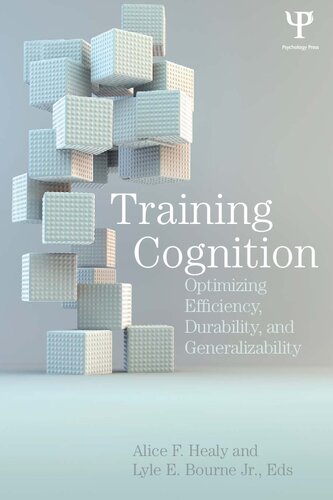

Most ebook files are in PDF format, so you can easily read them using various software such as Foxit Reader or directly on the Google Chrome browser.
Some ebook files are released by publishers in other formats such as .awz, .mobi, .epub, .fb2, etc. You may need to install specific software to read these formats on mobile/PC, such as Calibre.
Please read the tutorial at this link: https://ebookbell.com/faq
We offer FREE conversion to the popular formats you request; however, this may take some time. Therefore, right after payment, please email us, and we will try to provide the service as quickly as possible.
For some exceptional file formats or broken links (if any), please refrain from opening any disputes. Instead, email us first, and we will try to assist within a maximum of 6 hours.
EbookBell Team

4.1
90 reviewsTraining is both a teaching and a learning experience, and just about everyone has had that experience. Training involves acquiring knowledge and skills. This newly acquired training information is meant to be applicable to specific activities, tasks, and jobs. In modern times, where jobs are increasingly more complex, training workers to perform successfully is of more importance than ever. The range of contexts in which training is required includes industrial, corporate, military, artistic, and sporting, at all levels from assembly line to executive function. The required training can take place in a variety of ways and settings, including the classroom, the laboratory, the studio, the playing field, and the work environment itself.
The general goal of this book is to describe the current state of research on training using cognitive psychology to build a complete empirical and theoretical picture of the training process. The book focuses on training cognition, as opposed to physical or fitness training. It attempts to show how to optimize training efficiency, durability, and generalizability. The book includes a review of relevant cognitive psychological literature, a summary of recent laboratory experiments, a presentation of original theoretical ideas, and a discussion of possible applications to real-world training settings.